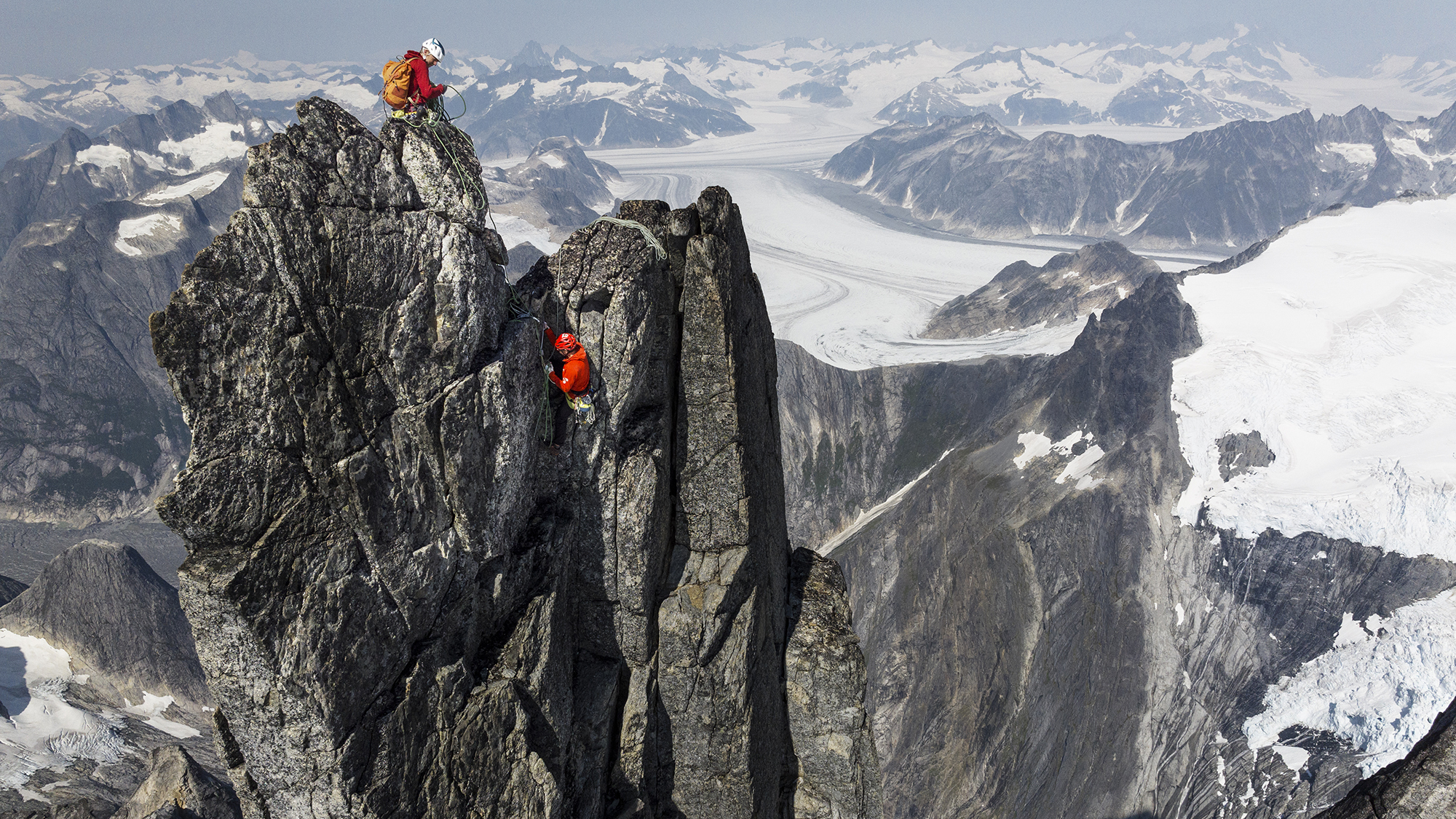

Alex Honnold has already accomplished more physical feats than almost anyone else alive. The 47-year-old rock climbing pro first made major headlines thanks to the Oscar-winning documentary, Free Solo, that focused on his ascent of the national park’s El Capitan peak without any harnesses or ropes. But it’s his passion for exploration and environmental conservation that drove him to team up with longtime climbing partner and friend, Tommy Caldwell, to embark on an “ecopoint” excursion—a term denoting an outdoor challenge that relies on zero fossil-fuel emissions.
The results are documented in the new documentary, The Devil’s Climb, which premieres on October 17th on National Geographic before hitting Disney+ and Hulu the following day. The Devil’s Climb showcases Honnold and Caldwell on a 2,600-mile journey across North America through some of its most stunning natural wonders by way of bike, kayak, sailboat, and off-trail hiking. The trip culminated in a final stop at the Devil’s Thumb, a 9,000-foot-tall summit in Alaska amid a jagged mountain range even many experienced climbers wouldn’t dare to scale.

Many viewers might think charting such an arduous, 55-day trip required scouring crinkled paper atlases—but as Honnold tells Popular Science, most of the time that just wasn’t the case.
“We needed to cross reference all kinds of different maps all the time because we were cycling,” he says. “But if you use just the cycle map on Google, it sends you on all kinds of crazy things [because] it’s in beta. It’ll send you… across pastures and cow fields and through private property.”
Taking the straightforward routes, however, would have sent Honnold and Caldwell speeding down popular highways and interstates—not exactly the most ideal of scenarios, either. The solution lay in comparing every available map of a given area to figure out the ideal compromise.
“We were constantly looking at satellite maps, trying to zoom in on things and be like, ‘Is there actually a road there?’” he says. The plotting initially ended up taking the duo diagonally across Wyoming, for example, with virtually no paved roads. “It was pretty adventurous. We were riding with wild horses.”

Although Honnold and Caldwell physically trained for months before their two-month trip, there really is only so much one can do to prepare for such a test of endurance—and lung capacity.
“For me, at the beginning, I was really feeling the altitude,” says Honnold. “We started in the Rocky Mountains and went over the highest points of the Rockies several times in the first few days. And I’d come from sea level, basically. So it was like, ‘Well, I feel it.’”
After nearly eight weeks of headwinds, rain, and hills, the friends finally arrived in Alaska, ready for the Devil’s Climb. Unlike Honnold’s Free Solo feat, however, he wasn’t about to ascend 1.75 miles into the sky without at least some gear.
“There’s definitely a lot of climbing equipment that makes a thing like this possible,” he says. Honnold notes that while some of his other friends traversed the route’s first few spires about a decade ago, even the most basic assistance has improved since then.

“Just in those 10 years, ropes, and climbing gear have gotten lighter. Boots have gotten lighter, and a lot of the other technical equipment has gotten smaller, so you’re just able to move faster with less weight,” he explains. “… But you know, when it comes down to it, it’s still how well you can climb one rock like that. But it certainly helps to have less weight on you, to be less encumbered.”
Looking back on his latest adventure, Honnold says he often returns to the sheer size of the project.
“When you see it on a map, I was like, ‘Wow, what a journey.’ That’s something that I’ll be proud of for the rest of my life.”
Now, however, Honnold isn’t content to simply leave it at the Devil’s Thumb. Next month, Honnold plans on heading back to Yosemite for “a handful of other projects similar to this.” Just don’t expect all the biking, sailing, and wild horses.
“I don’t know if I ever need to do a bike journey like this again,” he says with a laugh. “I mean, it was cool, but I think I would have preferred to just… climb more. Because ultimately, I love climbing.”
